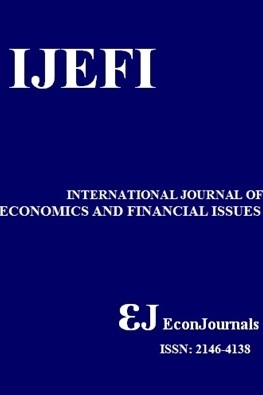The Linkage of Human and Money Flows to Rural-Urban Fringe Poverty in South Sumatra, Indonesia: In an Islamic Perspective
The Linkage of Human and Money Flows to Rural-Urban Fringe Poverty in South Sumatra, Indonesia: In an Islamic Perspective
Flow of people, flow of money, poverty, rural urban fringe, zakat,
- Başlangıç: 2011
- Yayıncı: İlhan ÖZTÜRK
Morteza EZZATİ, Nazanin AFSHİNFAR
Wanjuu Zungwe Lazarus, Hlalefang Khobai, Pierre Le Roux
The Urgency of Allignment Islamic Bank to Increasing the Outreach (Indonesia Evidence)
Lucky Nugroho, Wiwik Utami, Citra Sukmadilaga, Tettet Fitrijanti
Analyze the Determinants of Capital Structure for Vietnamese Real Estate Listed Companies
Nhung Thi Phuong Nguyen, Lien Phuong Nguyen, Hang Thi Thu Dang
Abimelech Paye Gbatu, Zhen Wang, Presley K. Wesseh Jr., Isaac Yak Repha Tutdel
Assessing the Triple Deficit Hypothesis for Major South Asian Countries: A Panel Data Analysis
Shruti Shastri, A.K. Giri, Geetilaxmi Mohapatra
Behavioral Finance and Financial Contagion: The Evidence of DCC-MGARCH Model From 63 Equity Markets
Mariem TALBİ, Adel BOUBAKER, Saber SEBAİ
Functional Forms and Oligopolistic Models: An Empirical Analysis
